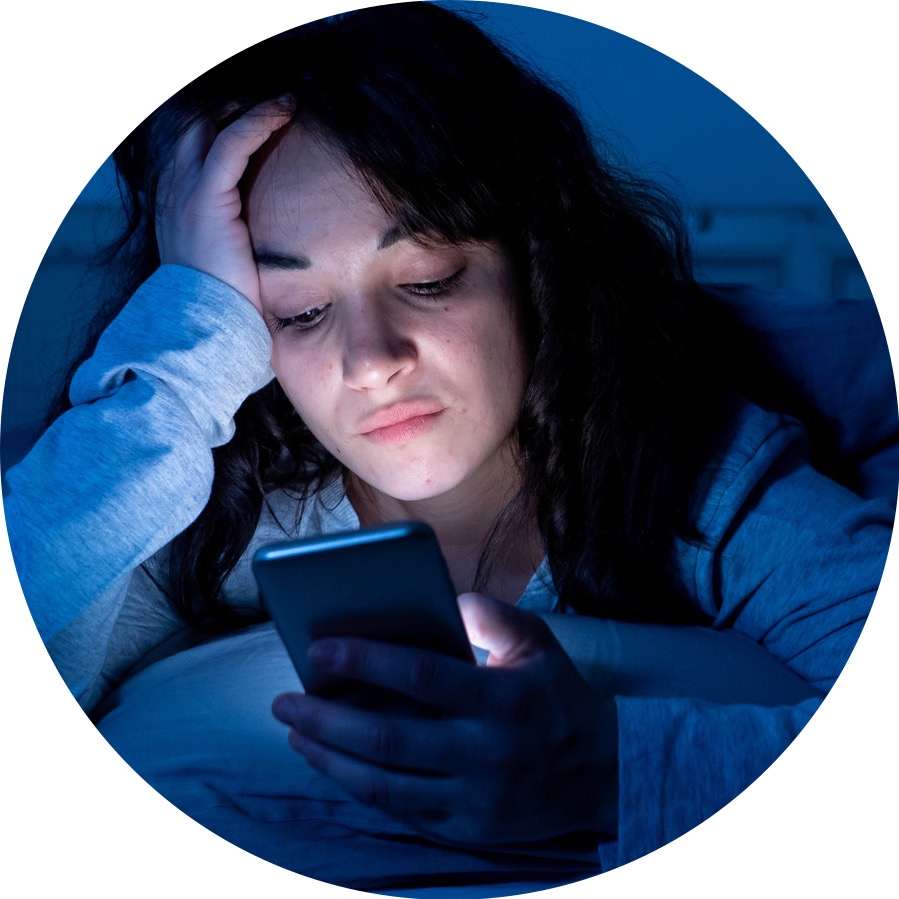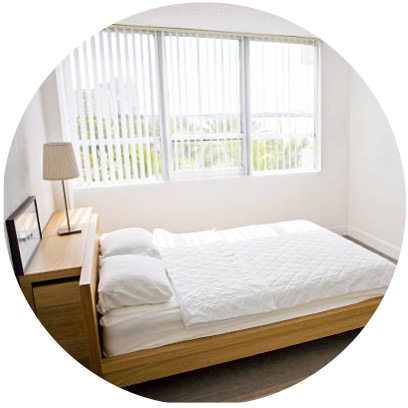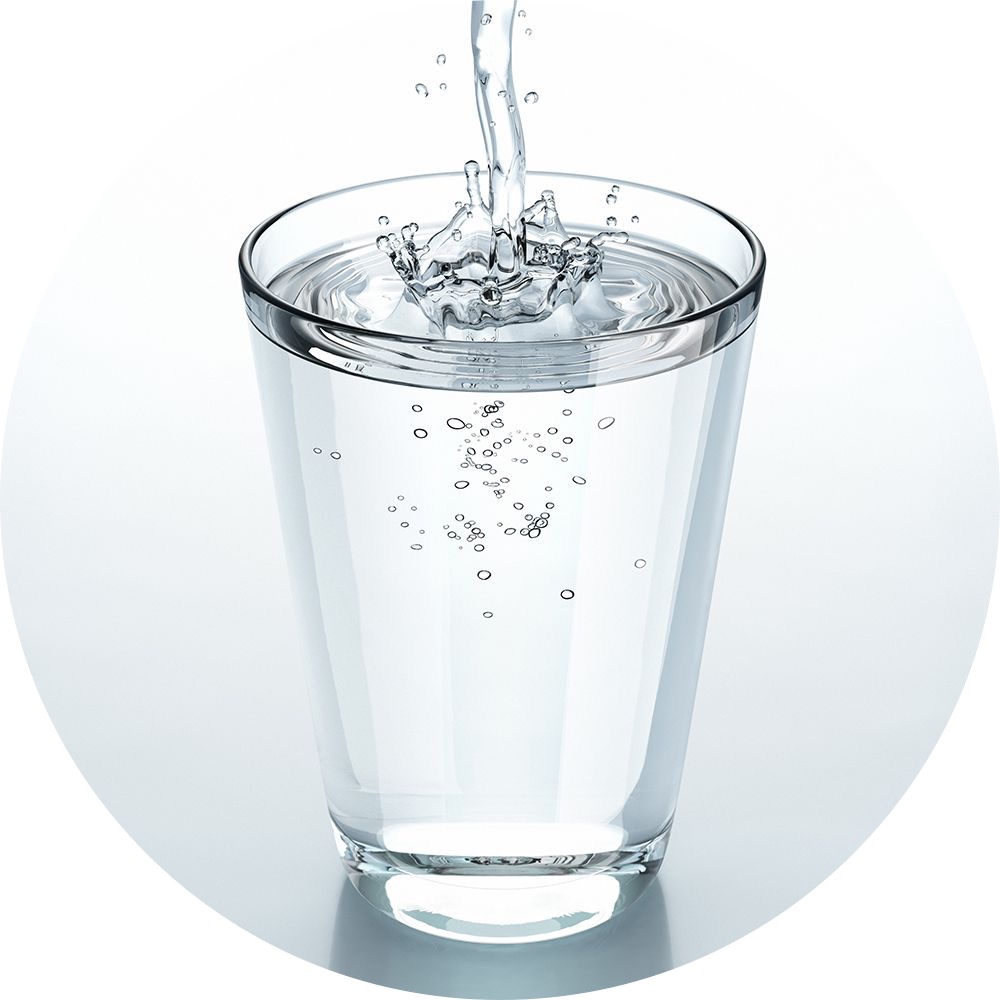During sleep, your body is working to support healthy brain function and maintain your physical health. Regular, good quality sleep is important for brain functioning, emotional wellbeing, physical health, daytime performance and personal safety. Adults need at least 7–8 hours of sleep each night to be well rested (Health Navigator NZ). Getting inadequate sleep over time can raise your risk for chronic (long-term) health problems (National Institutes of Health).
Here are some tips to help you sleep better at night:

Natural sunlight or bright light during the day helps keep your circadian rhythm healthy. This improves daytime energy, as well as nighttime sleep quality and duration.
💡 Sit near a window or walk during lunch to increase sun exposure

Exposure to light during the day is beneficial, but nighttime light exposure has the opposite effect. This is due to its effect on your circadian rhythm, tricking your brain into thinking it’s still daytime. This reduces hormones like melatonin, which help you relax and get deep sleep.
💡 Switch the screen time for bedtime reading or crafts

When consumed late in the day, caffeine stimulates your nervous system and may stop your body from naturally relaxing at night.
💡 Don't drink caffeine up to 6 hours before bed to avoid significantly worsened sleep quality (Drake et al., 2013).

Being consistent with your sleep and waking times can aid long-term sleep quality. Irregular sleep patterns can alter your circadian rhythm and levels of melatonin, which signal your brain to sleep.
💡 Set an alarm in the mornings and evenings to establish sleep times

Factors such as temperature, noise, external lights, and furniture arrangement can affect your sleep quality.
💡 To optimize your sleeping environment, try to minimize external noise, light, and artificial lights from devices like alarm clocks.

Eating late at night may negatively affect both sleep quality and the natural release of HGH and melatonin. The quality and type of your late-night snack may play a role as well.
💡 If you need to eat later in the evening, consider these snack options

Exercise is one of the best science-backed ways to improve your sleep and health. It can enhance all aspects of sleep and has been used to reduce symptoms of insomnia. ⚠️ Exercise too late in the day may cause sleep problems due to its stimulatory effect.
💡Exercising earlier in the day or evening to avoid its stimulatory effect

Although hydration is vital for your health, it’s wise to reduce your fluid intake in the late evening. Excessive urination during the night affects sleep quality and daytime energy.
💡 Try not to drink any fluids 1-2 hours before going to bed
Original Source: https://www.healthline.com/nutrition/17-tips-to-sleep-better
During sleep, your body is working to support healthy brain function and maintain your physical health. Regular, good quality sleep is important for brain functioning, emotional wellbeing, physical health, daytime performance and personal safety. Adults need at least 7–8 hours of sleep each night to be well rested (Health Navigator NZ). Getting inadequate sleep over time can raise your risk for chronic (long-term) health problems (National Institutes of Health).
Here are some tips to help you sleep better at night:

Natural sunlight or bright light during the day helps keep your circadian rhythm healthy. This improves daytime energy, as well as nighttime sleep quality and duration.
💡 Sit near a window or walk during lunch to increase sun exposure

Exposure to light during the day is beneficial, but nighttime light exposure has the opposite effect. This is due to its effect on your circadian rhythm, tricking your brain into thinking it’s still daytime. This reduces hormones like melatonin, which help you relax and get deep sleep.
💡 Switch the screen time for bedtime reading or crafts

When consumed late in the day, caffeine stimulates your nervous system and may stop your body from naturally relaxing at night.
💡 Don't drink caffeine up to 6 hours before bed to avoid significantly worsened sleep quality (Drake et al., 2013).

Being consistent with your sleep and waking times can aid long-term sleep quality. Irregular sleep patterns can alter your circadian rhythm and levels of melatonin, which signal your brain to sleep.
💡 Set an alarm in the mornings and evenings to establish sleep times

Factors such as temperature, noise, external lights, and furniture arrangement can affect your sleep quality.
💡 To optimize your sleeping environment, try to minimize external noise, light, and artificial lights from devices like alarm clocks.

Eating late at night may negatively affect both sleep quality and the natural release of HGH and melatonin. The quality and type of your late-night snack may play a role as well.
💡 If you need to eat later in the evening, consider these snack options

Exercise is one of the best science-backed ways to improve your sleep and health. It can enhance all aspects of sleep and has been used to reduce symptoms of insomnia. ⚠️ Exercise too late in the day may cause sleep problems due to its stimulatory effect.
💡Exercising earlier in the day or evening to avoid its stimulatory effect

Although hydration is vital for your health, it’s wise to reduce your fluid intake in the late evening. Excessive urination during the night affects sleep quality and daytime energy.
💡 Try not to drink any fluids 1-2 hours before going to bed
Original Source: https://www.healthline.com/nutrition/17-tips-to-sleep-better
During sleep, your body is working to support healthy brain function and maintain your physical health. Regular, good quality sleep is important for brain functioning, emotional wellbeing, physical health, daytime performance and personal safety. Adults need at least 7–8 hours of sleep each night to be well rested (Health Navigator NZ). Getting inadequate sleep over time can raise your risk for chronic (long-term) health problems (National Institutes of Health).
Here are some tips to help you sleep better at night:

Natural sunlight or bright light during the day helps keep your circadian rhythm healthy. This improves daytime energy, as well as nighttime sleep quality and duration.
💡 Sit near a window or walk during lunch to increase sun exposure

Exposure to light during the day is beneficial, but nighttime light exposure has the opposite effect. This is due to its effect on your circadian rhythm, tricking your brain into thinking it’s still daytime. This reduces hormones like melatonin, which help you relax and get deep sleep.
💡 Switch the screen time for bedtime reading or crafts

When consumed late in the day, caffeine stimulates your nervous system and may stop your body from naturally relaxing at night.
💡 Don't drink caffeine up to 6 hours before bed to avoid significantly worsened sleep quality (Drake et al., 2013).

Being consistent with your sleep and waking times can aid long-term sleep quality. Irregular sleep patterns can alter your circadian rhythm and levels of melatonin, which signal your brain to sleep.
💡 Set an alarm in the mornings and evenings to establish sleep times

Factors such as temperature, noise, external lights, and furniture arrangement can affect your sleep quality.
💡 To optimize your sleeping environment, try to minimize external noise, light, and artificial lights from devices like alarm clocks.

Eating late at night may negatively affect both sleep quality and the natural release of HGH and melatonin. The quality and type of your late-night snack may play a role as well.
💡 If you need to eat later in the evening, consider these snack options

Exercise is one of the best science-backed ways to improve your sleep and health. It can enhance all aspects of sleep and has been used to reduce symptoms of insomnia. ⚠️ Exercise too late in the day may cause sleep problems due to its stimulatory effect.
💡Exercising earlier in the day or evening to avoid its stimulatory effect

Although hydration is vital for your health, it’s wise to reduce your fluid intake in the late evening. Excessive urination during the night affects sleep quality and daytime energy.
💡 Try not to drink any fluids 1-2 hours before going to bed
Original Source: https://www.healthline.com/nutrition/17-tips-to-sleep-better